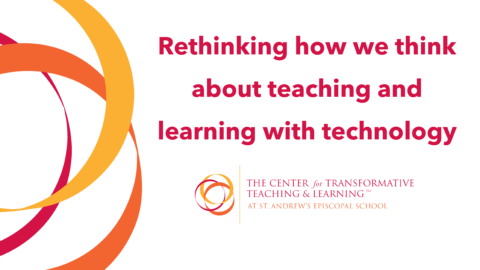At the CTTL, we’re focused on using the best of Mind, Brain, and Education Science research to help teachers maximize their effectiveness and guide students toward their greatest potential. Doing that often means addressing what we like to call “Learning Myths”—those traditional bits of teaching wisdom that are often accepted without question, but aren’t always true. We also like to introduce new insight that can change the classroom for the better. In our Learning Myths series, we’ll explore true-or-false statements that affect teacher and student performance; for each, we’ll dive into the details that support the facts, leaving teachers with actionable knowledge that they can put to work right away.
True or False? All students, even the strongest ones, can benefit from additional training in executive functioning.
Answer: True! Executive functioning (or EF) is often described as the “air traffic control tower of the brain,” guiding different mental resources to address whatever is at hand. EF relies on three types of brain function:
- Working memory (for more on that, check out our previous blog post!)
- Mental flexibility
- Self-control
The Center for the Developing Child at Harvard University adds the following context: “Just as an air traffic control system at a busy airport safely manages the arrivals and departures of many aircraft on multiple runways, the brain needs this skillset to filter distractions, prioritize tasks, set and achieve goals, and control impulses.”
That quote raises the first mistake people often make with EF, which is to think of it as a single skill that a student could be good or bad at. Rather, it is a skillset, including things like:
- Setting goals
- Holding information in working memory while it’s processed
- Prioritizing tasks
- Filtering distractions
A student’s proficiency will vary throughout these skills—and a certain skill might be more easily used in one task or class than another. So we need to be specific—which skills are strong for a particular student? What gives them a challenge?
Happily for teachers, the part of the brain largely responsible for EF—the prefrontal cortex—is still developing into our mid-20’s, which means that there’s great potential for improvement for all of our students, even those who are already performing well academically. It’s our job to encourage them to keep learning and practicing these skills, always seeing themselves as a work in progress.
That encouragement is important because, as any human will tell you, life can get overwhelming pretty fast. Students have a lot to balance, and it can be tempting to just give up on trying to organize and execute tasks. But you can offer tangible ideas that can help them, such as:
- Listing out concrete steps that will help them complete a given task, and showing them to someone else to see if they can offer helpful feedback
- Using a graphic organizing technique, such as mind mapping (either on paper or online), to make sense of their thoughts, plan a project, or outline a paper—which gives their working memory a break
- Taking a break and going for a walk or listening to a good song—choosing a healthy, pleasurable way to give your brain a rest
- Designing a project so that it is split into manageable chunks with check-in or accountability points along the way
- Practicing self-monitoring at different points throughout a project before the final due date so they can check in to see if they’re on track (you can guide them with a checklist or simple rubric to fill in)
You can also create a space in your classroom where students can go if they need a minute to catch their breath: just a comfortable place with a beanbag chair and a blanket can help. Having a quiet fidget toy on hand, such as thinking putty or another manipulative object, can provide a good mental break.
Some research suggests that it may be impossible to significantly increase an individual student’s EF ability, as there’s no evidence to prove that working memory capacity can be significantly improved. So, our focus should be providing tools that help students use what they’ve got in a more meaningful, effective way. That’s not limited to processes directly related to schoolwork, either. Some other important tools include:
- Anything that helps students handle social or emotional stress, and strategies for sleeping better—this could include meditation or other mindfulness techniques, putting limits on screen time, exercise, journaling, or other nighttime rituals that help them wind down
- Strategies for physical organization that can help them keep track of the things they need to be successful in their binders, backpacks, or lockers—and periodic check-ins to see how their systems are holding up
Overall, it’s important to go beyond just saying “executive functioning” and name the skills students are doing well or struggling with. We have to help all students see that their ability to manage their physical environment, their emotional needs, and their attention on their work is an important part of being a good student. Executive functioning is a set of skills that are developed over a long period of time, so getting students to mindfully start that journey is key—as is reminding them that the goal is constant improvement, not automatic perfection.
Here at the CTTL, we love putting our EF skills into practice—particularly breaking down big goals into manageable chunks. Case in point: our newest endeavor, Neuroteach Global, helps teachers infuse their classroom practices with research-informed strategies for student success—in just 3-5 minutes a day, on a variety of devices.




